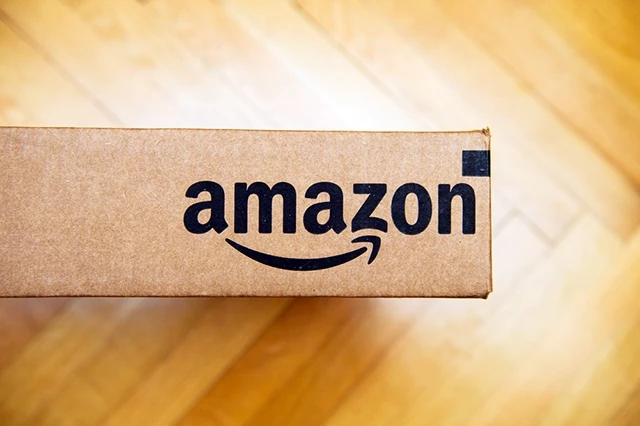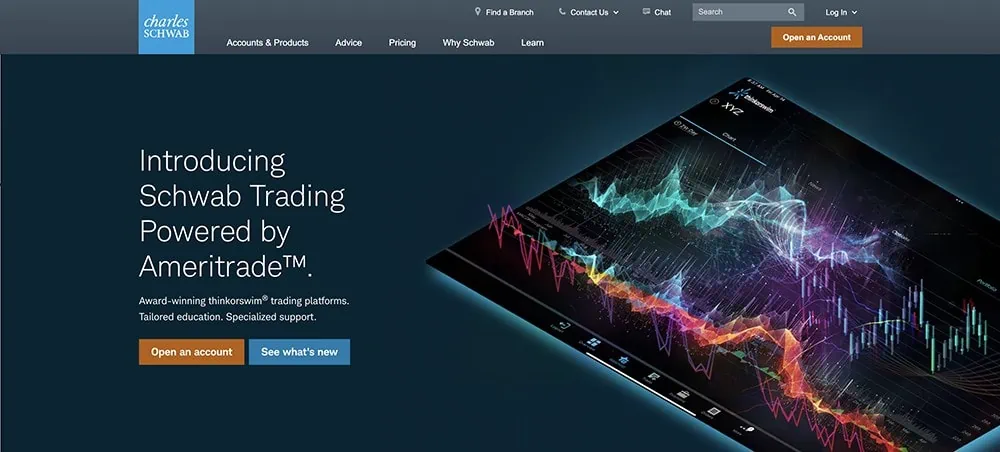Finding the best tech stocks for any year is no easy task, as the technology sector can change rapidly. Anyone who has been buying individual stocks this year knows that artificial intelligence has been, but some of the top tech stocks from prior years rode similar uptrends before falling painfully back to earth.
So how do you separate the best tech stocks to buy now from the fad stocks trading on short-lived news trends? And how do today’s small technology stocks become tomorrow’s tech giants? Read on, and I’ll discuss that, and give you an overview of the best tech stocks for 2024.
Disclaimer: This article does not constitute individualized investment advice. These securities appear for your consideration and not as investment recommendations. Act at your own discretion.
Why Invest in the Tech Sector?

Many investors are interested in top tech stocks for good reason. Disruptive technologies can sometimes lead to dramatic revenue growth, and dramatic gains in a firm’s stock price as a result.
In fact, technology companies sometimes chase that revenue growth for years without ever focusing on bottom-line profits. Some of the best-performing tech (and “tech-esque”) stocks in history include Amazon.com (AMZN) and Tesla (TSLA), which both prioritized ramping up their long-term scale over short-term profitability.
And look where they are now. Both are among the biggest companies on the planet, outperforming the market by wide margins over the last several years.
This is why many investors look for growth stocks within the tech sector and tech-adjacent companies. It’s not for the short-term profits or dividends, but rather the hopes of a “moonshot” stock that grows exponential revenue growth in short order, delivering life-changing profits to its investors in the process.
The Best Tech Stocks to Invest In
Some of the best-performing tech stocks are very recognizable names. But before you buy any of them, don’t forget that investing is fundamentally about the future. That means learning about the product pipeline and R&D beyond what’s on the surface.
Leading tech firms are often the parent company of lesser-known products or services that could be just as interesting. Particularly when it comes to entrenched mega-cap tech stocks, their future potential depends on revenue streams that have yet to be fully realized yet—not the big-name products consumers currently use.
The tech stocks here are listed in alphabetical order.
Best Tech Stock #1: Accenture

- Market capitalization: $223.3 billion
- Dividend yield: 1.7%
- Industry: IT services and consulting
Professional services specialist Accenture (ACN) has made a name for itself by providing “DevOps” blueprints to top companies around the world. This unique approach involves high technological improvements such as custom software development, systems upgrades, and data migration to ultimately provide improved service and efficiencies across complex organizations.
Whether it’s helping a firm get smarter about its customers through data analytics and artificial intelligence or simply consulting on how to trim the IT fat after a complex acquisition, Accenture is a firm that the biggest brands in the world turn to to solve their tech problems. And with a recently announced team-up with Amazon to provide generative AI solutions to clients, Accenture is working hard to ensure it has the right tools for the future as well as for today.
“We believe Accenture remains a market leader in developing and investing in next-generation capabilities, and the company’s global presence and scale remain strategic differentiators that are not easily replicated,” say William Blair analysts, who rate the stock at Outperform (equivalent of Buy). “We are confident that Accenture is capable of capitalizing on demand for AI services and setting up clients to prepare for this next wave of digital transformation.”
Best Tech Stock #2: Adobe

- Market capitalization: $218.9 billion
- Dividend yield: N/A
- Industry: Enterprise software
Creative software and services firm Adobe (ADBE) is the go-to platform for photographers, marketing directors, educators, publishers, and just about anyone who uses visuals to tell a story.
With loyal customers and long-term certainty thanks to subscription-based revenue rather than one-off product sales, ADBE is a growth-oriented tech stock to consider for 2024 and beyond. As proof of the fact Adobe is looking to the future, it has invested heavily in “Firefly” artificial intelligence tools that continue to cause a buzz about the potential for computer assisted design in the 21st century.
To be fair, ADBE stock itself hasn’t been a great story over the past few months. Shares have bucked the broader market’s bull trend, falling into bear territory amid, among other things, weak guidance for current-quarter revenues.
Still, a recent investor meeting with analysts left many pros convinced ADBE will right the ship.
“The Adobe Summit and Investor Day presented a compelling vision of why an integrated underlying data platform, differentiated GenAI models, strong workflow capabilities, the ability to activate content through multiple marketing channels and finally garner insight on the effectiveness of that content to feed back into the system create a highly differentiated solution set for their customers,” says Morgan Stanley analyst Keith Weiss, who rates ADBE at Overweight (equivalent of Buy).
“We remain impressed with Adobe’s cadence of innovations and new product introductions,” add Oppenheimer analysts, who call ADBE a “show-me stock” but still rate shares at Outperform. “In our view, ADBE offers an attractive risk/reward at current levels.”
Related: The 10 Best Fidelity Funds You Can Own
Best Tech Stock #3: Amazon

- Market capitalization: $2.2 trillion
- Dividend yield: N/A
- Industry: Online retail/cloud
Amazon (AMZN) dominates the retail world. It is a one-stop shop for nearly anything you could want. And it has redefined customer expectations—they were a pioneer in two-day, one-day and even same-day shipping.
And yet, it’s also so much more than that.
Amazon is also the world’s biggest cloud provider through AWS, it’s an entertainment company through its Amazon Prime service, and it’s one of the biggest advertising companies, behind only giants Google and Facebook. AMZN makes for such an attractive stock because it’s supported by a diversified business with ample opportunities to enter new markets and disrupt well-seated industry incumbents.
That said, the optimism about future growth is mostly centered around AWS, cloud, and the potential growth AI could deliver.
“While AWS revenue came in ‘only’ in line with expectations, it did so at better margin and with commentary to suggest the accelerated pace of growth should carry into 2024,” William Blair’s equity analysis team, which rates the stock at Outperform, said after the company’s fourth-quarter earnings report Feb. 1. “Cloud migrations are picking up again, some of which were postponed over the last couple years, which is layering in new workloads to AWS. And of course, AWS’s gen AI capabilities are seeing accelerating demand, creating another tailwind. Though the company did not specify a revenue figure this quarter from gen AI, it articulated its belief that gen AI will drive tens of billions of dollars in revenue over the next several years.”
After AMZN’s third quarter earnings report for 2024, AWS’s profit margins continued to widen on accelerating revenue growth of 11% year over year, faster than analyst expectations going into the report.
Related: 10 Best Vanguard Funds for the Everyday Investor
Best Tech Stock #4: ASE Technology

- Market capitalization: $22.0 billion
- Dividend yield: 3.3%
- Industry: Semiconductor manufacturing
Taiwan-based semiconductor firm ASE Technology (ASX) is not a design shop, but a manufacturer of third-party chips. Providing only the packaging, testing, and manufacturing isn’t as high-margin of a business, but does offer consistent income—as evidenced by a yield that is more than quadruple the typical S&P 500 component, thanks to incredibly consistent revenue and large customers with long-term relationships.
Thanks to increasing demand for chips in the world, ASE delivered a 60% total return (price plus dividends) in 2023, and is following it up with another 20% run so far in 2024. Analysts are also projecting 48% earnings growth for the current year, and another 31% in bottom-line expansion for 2025.
Related: 7 Best Schwab Funds You Can Buy: Low Fees, Low Minimums
Best Tech Stock #5: Microsoft

- Market capitalization: $3.2 trillion
- Dividend yield: 0.8%
- Industry: Enterprise software
Microsoft (MSFT) is a dominant tech stock that has seen amazing growth over the past few decades. But despite that, as well as a more than $3 trillion market cap, MSFT still shows no signs of slowing down.
The average person knows Microsoft for its iconic Windows and Office productivity software for personal computers, as well as its Xbox gaming console and related software (which is only getting more dominant after a nearly $70 billion deal to acquire game studio Activision Blizzard [ATVI]).
But Microsoft also is a major player in cloud computing, via its still-growing Azure cloud services, and an emerging titan in artificial intelligence.
“Microsoft has about as diversified and strong a set of assets as any company in the technology industry—and may even be seen as a haven by investors in uncertain times,” says Argus analyst Joseph Bonner. “The company is one of just a few with a complete, integrated product set aimed at enterprise efficiency, cloud transformation, collaboration, and business intelligence. It also has a large and loyal customer base, a large cash cushion, and a rock-solid balance sheet.”
Revenue growth projections for the next fiscal year are currently around 14%, proving that this dominant tech stock can indeed keep getting bigger and delivering profits for its shareholders.
While most analyst firms already cover Microsoft, Truist joined the fray in late 2023—and after just a few months on the beat, they’re still plenty optimistic.
“We continue to see Microsoft as leading the pack of vendors in companies’ AI deployments,” say Truist analysts, who rate the stock at Buy. “Early adopters of the technology have started to push projects into production, and we believe that the investment dollars that large companies have put into R&D for generative AI applications will drive accelerated application rollouts in the second half of 2024 and into 2025.”
Related: The 7 Best T. Rowe Price Funds to Buy and Hold
Best Tech Stock #6: Palo Alto Networks

- Market capitalization: $125.1 billion
- Dividend yield: N/A
- Industry: Cybersecurity
In an age of persistent cybersecurity and hacking concerns, Palo Alto Networks (PANW) stands out as a company with both a reliable customer base as well as the near certainty of increased revenue coming its way across the coming years.
But investors will have to deal with short-term turbulence as the cybersecurity darling makes a massive change to the way it does business.
Palo Alto is migrating to a security platform approach, and it’s banking on comped services to attract customers to it. That, as well as a slowdown in business with the federal government, led the company to lower full-year billings and revenue guidance in February. Shares tanked as a result, shaking at least a few bulls out in the process. But by and large, the pros remain bullish on PANW’s longer-term prospects.
“We fully expect many peers to throw in the white towel on PANW this morning, as after a Cinderella story the last few years, the company now faces some near-term growth challenges, which will result in multiple contraction and worries if numbers are de-risked,” says Wedbush analyst Daniel Ives, who rates shares at Outperform. “Our view is that the move to the platform approach in cybersecurity is the right long-term move for PANW, and [the company] will ultimately emerge from this transition in a stronger market position. The strong [free cash flow] story remains intact, and while we recognize this stock is in the penalty box, PANW is a core name in the cybersecurity sector to play the emerging cloud and AI trends we see on the horizon.”
Related: The 13 Best Mutual Funds You Can Buy
Best Tech Stock #7: Salesforce

- Market capitalization: $297.2 billion
- Dividend yield: 0.5%
- Industry: Enterprise software
So-called “customer relationship management” software helps marketing and sales staff make the most of their prospects.
And as you can probably tell by the ticker, Salesforce (CRM) is the world leader in CRM tools with a customer base of more than 150,000 companies that it helps to increase productivity, customer loyalty, and sales revenue. Salesforce stock shot up 125% in 2023, and has delivered double-digit gains so far in 2024, thanks in large part to strong earnings, as well as double-digit profit-growth projections for this year and next.
“In our view, Salesforce is well positioned to exploit the long-term secular trends in enterprise software toward digital transformation focused on generative AI, customer experience, software-as-a-service cloud solutions, data analytics, and platform software services, and away from higher-cost on-premise solutions and the management of complex point solutions,” says Argus Research analyst Joseph Bonner, who rates CRM shares at Buy. “While Salesforce is still viewed mainly as a sales CRM company, its expansion into higher-growth product areas has produced a balanced portfolio with new, faster-growing business lines like Integration and Analytics augmenting the more mature Sales Cloud and Service Cloud product lines.”
What’s more, the company earmarked an additional $10 billion for stock buybacks in 2023, showing a long-term commitment to protecting shareholder value by reducing its share count.
Related: The 10 Best Vanguard Index Funds You Can Buy
Best Tech Stock #8: Shopify

- Market capitalization: $110.0 billion
- Dividend yield: N/A
- Industry: E-commerce
Shopify (SHOP) is an e-commerce infrastructure company that helps small and mid-sized businesses market and sell products through various digital sales channels. The basics include web and mobile storefronts, but SHOP also supports “omnichannel” integration with brick and mortar locations to manage inventory, as well as analytics and reporting to maximize profitability and customer loyalty.
This tech stock well more than doubled in 2023 thanks to expectations for continued growth and success. It finished 2023 with 26% revenue growth, and flipped to a $132 million profit after losing nearly $3.5 billion the year before.
SHOP is projected to grow its top line by around 20% this year and next, while adjusted profits should grow by 30% or more in 2024 and 2025. But shares haven’t been nearly as productive, with Shopify sitting in the red YTD after delivering light guidance in February.
William Blair analysts (Outperform) called the post-earnings selloff a “buying opportunity.”
“Importantly, the company is making progress on key growth initiatives such as enterprise, international, POS, and B2B, which should all bode well for long-term growth,” they say. “In addition, despite the lower-than-expected first-quarter FCF guidance, we expect the company to end 2024 with a higher FCF margin than 2023, with further improvement in 2025. Although the stock could take a pause in the near term, we expect shares to move higher once investors get more visibility into the company’s growth and FCF trajectory.”
We all know the potential of e-commerce thanks to the success of Amazon. But SHOP is concerned with every other merchant out there that also has the potential to reach new customers in a digital age.
Related: 7 Best Schwab Index Funds for Thrifty Investors
Best Tech Stock #9: Vertex

- Market capitalization: $8.0 billion
- Dividend yield: N/A
- Industry: E-commerce
Vertex (VERX) is a budgeting and tax technology specialist that serves a host of industries ranging from retail to communication to manufacturing firms worldwide. It offers specialized software and cloud-based solutions that assists with tax determination, compliance and reporting that is far more sophisticated than your typical e-filing software.
The company continues to grow steadily, with Vertex reporting a 16%-plus jump in revenues for full-year 2023, and analysts projecting roughly 15% annual top-line growth for the next two years. In its most recent quarter, sales popped 18%, including a nearly 19% improvement in annual recurring revenues. That’s evidence that Vertex continues to build a strong foundation for the future with locked-in and loyal customers.
Morgan Stanley analyst Chris Quintero rates VERX at Overweight and calls the stock one of his favorite “SMID-cap” ideas right now. “VERX is starting to inflect as growth accelerates, aided by the benefits from the multi-year investment program,” he says, adding that two consecutive quarters of “pristine execution” should be rewarded.
Related: 9 Best Fidelity Index Funds to Buy
Invest in Tech Stocks With Schwab

Investors looking for maximum flexibility and low (or no) trading costs should explore a brokerage or retirement account with Schwab.
Schwab offers commission-free stocks, ETFs, thousands of mutual funds (from Schwab Mutual Fund OneSource), and even Treasury trades. Additional investment selections include corporate bonds, options, money market funds, futures, E-mini futures, and foreign exchange (forex), and you can even participate in some initial public offerings (IPOs) through the Schwab platform.
Want to learn more? Check out the review here, and from there, click the “Visit Site” button to visit Schwab and sign up.
- Charles Schwab is one of the best online and mobile trading platforms among discount brokers, offering a full range of investments (including professionally managed accounts). It allows you to invest in stocks, ETFs, mutual funds, options, bonds, futures, micro futures, and futures options.
- $0 commission trading for online U.S.-listed stocks, ETFs, options, mutual funds, and Treasuries. (Options do have a 65¢ contract fee.)
- More experienced traders can find plenty of horsepower in the Thinkorswim platform, which provides advanced charting, screening, complex options trades, access to a trading community, and more.
- Learn with Schwab, too. Schwab offers a wide variety of educational resources and stock news. The accounts offer regular market commentary, tax planning and retirement advice, stock and fund screeners, Schwab courses ranging from “Income Investing” to “Directional Options: Single Options and Spreads," and even access to Onward—Schwab’s quarterly financial magazine.
- Opening a Schwab account is easy and only takes a couple of minutes.
- Excellent selection of available investments
- Commission-free mutual funds and Treasuries
- Schwab Intelligent Portfolios (robo-advisory)
- Thinkorswim platform (absorbed from TD)
- Fractional shares
- No direct cryptocurrency trading
Tech Stocks: Frequently Asked Questions (FAQs)

Is technology the best sector in the stock market?
Technology stocks regularly are among the best-performing stocks on Wall Street, and they historically beat the broader S&P 500 index. But that should not be misunderstood to mean that the tech sector is a sure thing. According to Pensions & Investments, the technology sector slumped -28.2% in 2022—more than 10 percentage points worse than the broader market.
In other words, there are lots of reasons to like technology stocks and the tech sector. But there’s no such thing as a sure thing when it comes to investing.
Are there any downsides to investing in tech companies?
Many tech companies can be quite volatile as they pursue their long-term potential, often at the cost of short-term profits—or even short-term stock performance. One of the most common downsides of investing in tech stocks is that they can move up and down much more dramatically than sleepy sectors such as utility stocks or consumer staples.
That’s also what makes them popular stocks to buy, however. Those big moves are great when they are in an investor’s favor. Just be aware that the big downside of investing in tech companies is … well, the potential for bigger downsides.
Related:









